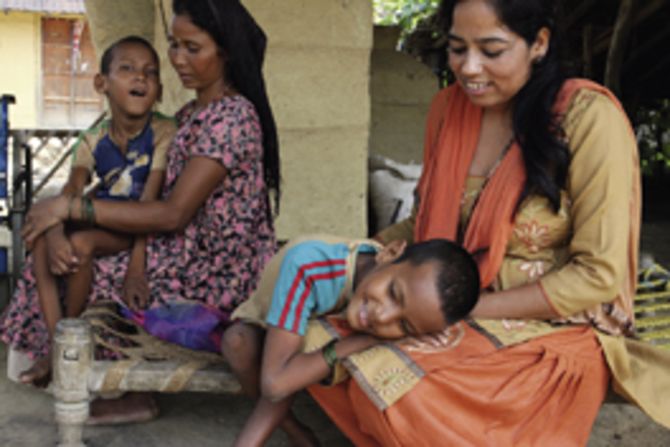Over ten years have passed since Rampyari brought healthy twins into the world, a girl and a boy called Jaykant and Jaykanti. The brother and sister developed well and became lively, cheerful children. To make sure they remained healthy the young mother regularly visited the medical check-ups provided by the state of Nepal for babies during the first twelve months of their lives.
Rampyari had the twins vaccinated against such diseases and infections as tetanus, measles and diphtheria which she knew to be a serious threat to the lives of children living in poor conditions.
Rampyari had no idea that vaccines only give protection if they are used according to the instructions. However, in Nepal negligence and deficient medical standards brought a tragedy upon Jaykant and Jaykanti.
“After one of the vaccinations the children vomited,” their mother relates. “First Jaykanti had a very high fever, and then her brother. Both of them went completely limp and couldn’t even crawl.” They also lagged behind in their mental development. Cerebral palsy was the diagnosis, most probably triggered by contaminated serum.
Vaccines are often unusable in Nepal owing to negligence. It is why Rampyaris' twins are disabled. They were not disabled before the vaccination.
This is a misfortune which occurs frequently in Nepal, as Prakash Pahari from the International Nepal Fellowship (INF) organisation knows only too well. “It is not uncommon for vaccines to be stored for far too long, or destroyed by excessive heat.” This is because in towns like Nepalgunj there can be numerous power failures per day.
The major city on the border between Nepal and India is dusty, hot and filthy. It is disastrous for people with disabilities in Nepalgunj. DAHW and its project partner of long standing, INF, bank on targeted rehabilitation programmes. For example Kalem, a paraplegic who fell down a steep slope while gathering animal fodder, today travels around in a new wheelchair as a mobile small trader for his family.
And there is warm-hearted Saradha who was outcast as a little girl and as a woman cannot find a husband because she has difficulty walking as a consequence of polio; she was given the opportunity to run a kiosk. And the desperate mother of the twins, Rampyari has also found her way back to contentment.
After being trained by staff at the INF she does physiotherapeutic exercises with Jaykant and Jaykanti. “Jaykanti is already able to eat without help and is now learning to stand on his own feet.”



